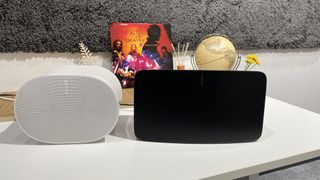
1. The list in brief
2. Best overall
3. Best budget
4. Best spatial audio
5. Best mid-price
6. Best Apple
7. Best premium
8. Best stereo system
9. Best for music and movies
10. Also consider
11. How to choose
12. How we test
12. FAQ
13. Recent updates
Choosing a wireless speaker isn't easy, as there is currently a sea of options covering pretty much every use case and budget you can think of, from budget portable units to high-end options costing hundreds, or even thousands.
None of that is made simpler by the fact that there are plenty of mediocre options available that aren't worth the cash at all, but we're here to help cut through the noise and guide you towards the best. We've tested all the models in the list below to ensure we only recommend the finest wireless speakers with multiple streaming features and the best performance around. If you're after more rugged portable and cheaper models that only use Bluetooth, our list of the best Bluetooth speakers is for you.
The past few years have been huge for wireless speakers, with many included in our Award-winning stable, with 2024 already seeing further strides made in this exciting arena. With Sonos impressing us with their Era 100 and Era 300 speakers, not to mention the resurgence of the Apple HomePod 2 and some great higher-end choices courtesy of Naim, Audio Pro and KEF, you're rather spoiled for choice.
To guarantee you get the best wireless speaker for your needs, we’ve created this guide recommending the top performers that What Hi-Fi?'s team of reviewers have tested. Find out more about our testing process or scroll on to see the best models around.
The quick list
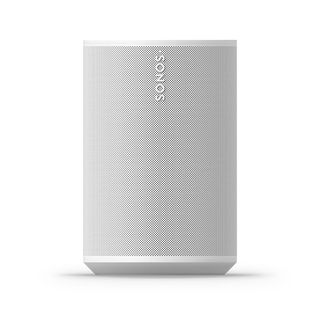
The best wireless speaker overall
Versatile, affordable and packed with features, we have no hesitation in recommending the enjoyable-sounding Sonos Era 100 to absolutely anybody.
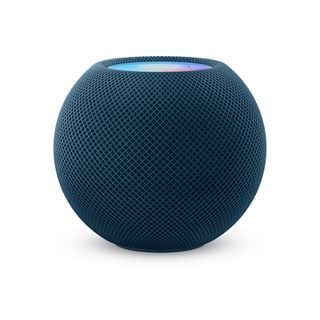
The best budget wireless speaker
Apple doesn’t normally do budget, but the HomePod Mini’s price tag matches its tiny dimensions, while offering a sound that’s anything but small.
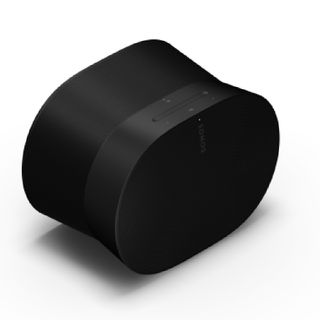
The best wireless speaker for spatial audio
The Era 300 makes Dolby Atmos tunes sound immense, but it performs brilliantly no matter what format you feed it.
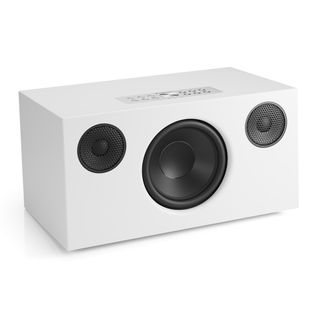
The best mid-price wireless speaker
With wide-ranging multi-room skills and performance that outdoes more expensive speakers, the C10 MkII is an excellent mid-price option.
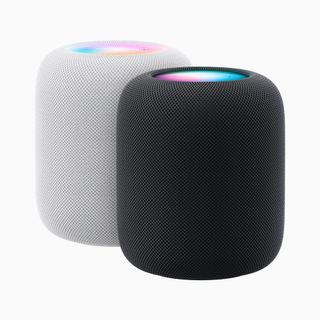
The best Apple wireless speaker
The superbly made second-gen HomePod sounds natural and spacious, but you need an Apple Music subscription to get the most from it, so only fully committed Apple disciples should consider owning one.
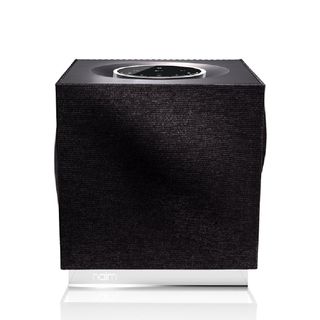
The best premium wireless speaker
Naim’s little box of musical tricks belies its compact dimensions in many ways, delivering superb sound and loads of streaming options that make it worth every penny.
Load the next product ↓
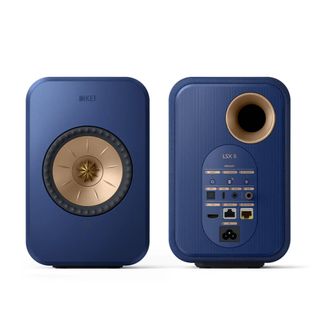
The best wireless stereo system
KEF’s stylish streaming system is the one to choose if you’re looking for proper stereo, with excellent imaging and myriad connectivity options.
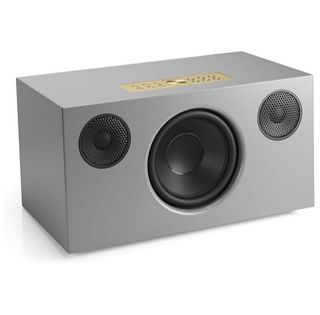
Best wireless speaker for music and movies
Audio Pro’s feature-packed C20 offers a raft of features and such an impressive sonic profile that it will excel no matter how you use it.

I'm a staff writer who has listened to and reviewed dozens of products during my time at What Hi-Fi?. Wireless speakers are becoming serious big business, offering a raft of streaming smarts and features alongside what feels like ever-improving sound quality. My time with the vast majority of the units below, at home and in our test rooms, has put me in the perfect position to help you figure out exactly which one to pick. There are plenty of factors to consider – from how much space you have to which features you prioritise, and whether you're an Apple user – but our picks below are varied and extensive enough to put you on the right path.
Best wireless speaker overall
As the name suggests, Sonos’ range of wireless speakers promises a new ‘era’ for the American audio company, and boy has it delivered on that front. Released alongside the Era 300 (see below), the Era 100 is the perfect complement to its larger, costlier sibling in that it delivers a host of streaming playback features and excellent sound in a neat, easy-to-use outfit.
The substantial £449/ $449/ AU$749 asking price for the Era 300 can be offputting, so the Era 100 is a five-star choice for anyone seeking to access the premium side of what Sonos is doing in this particular arena. Just like its heftier counterpart, the 100 delivers a big, open sound, a lovely sense of rhythmic drive and all the detail and precision you could hope for at this price point. The ever-excellent app, meanwhile, is a joy to use, the number of streaming features is vast, and everything is as well-made and reliable as you’d expect from a brand heading into this year with real momentum.
Again, Sonos rarely delivers what you’d call ‘budget’ options in the best wireless speakers category, and we’re not that happy about spending extra cash for a wired connection, but if you’re still looking to fork out a decent amount without making as much of a dent in your funds as the 300, the Era 100 is the wireless speaker for you.
Read our full Sonos Era 100 review
Best budget wireless speaker
We've grown to love the HomePod Mini, as have many of its users, and it definitely feels worthy of inclusion on our list of the best wireless speakers. A smart, bijou little model that stands just 8.4cm tall, it’s quite a bit smaller than the similarly spherical Amazon Echo - in fact, it’s even dwarfed by the fifth-gen Echo Dot. Get its swirling orb of coloured light up and running (when Siri is listening or processing) though, and you realise what a refined, classy performer you've got on your hands.
The sound quality is excellent for the size, but it goes loud, meaning the Mini can fill a whole room (within reason) with solid, well-formed audio. From the moment we start playing music, it’s clear that the HomePod Mini comfortably outperforms its size and price, adding sophistication and maturity to its decent number of decibels. Not at all bad for a price that falls just under the £100 / $100 / AU$150 mark.
Siri is your voice assistant, of course, and after a short period of learning it'll respond to the phrase “Hey Siri, play something I'll like” not by streaming your most played track of the last few weeks, but by playing something that you probably haven't heard before but which has been curated to fit in with your current listening habits and tastes. It’s a really powerful way to discover new music, and one of our favourite things about the diminutive HomePod.
A three-time What Hi-Fi? Award-winner that just keeps on impressing. Want to go bigger? Check out the Award-winning HomePod 2 below.
Read our full Apple HomePod Mini review
Best wireless speaker for spatial audio
If you liked the sound of the Era 100 and have the money to spend on something bigger, bolder and frankly better, you've landed at the right place. It isn't enough for the best wireless speakers just to deliver great sound and a decent array of features anymore, and ever since Apple's HomePod 2 landed early last year with spatial audio packed in, rivals have been scrambling to integrate the immersive tech in the most satisfying ways possible.
Enter the Era 300, Sonos’ more expensive rival to the HomePod 2 that looks to beat Apple at the spacial audio game. Featuring that unique, “cinched hourglass” shape, the Era 300 is a more acquired taste than most of the brand’s rather more conservative designs, but in terms of performance, the five-star Era 300 is a bit of a masterpiece.
Throw whatever you like at the Era 300, chances are it has it covered, filling our testing rooms with spacious, cohesive sound without ever seeming to break a sweat. Big choral numbers feel broad and immersive thanks to some of the best spatial audio performance we've heard yet, but the Era 300 excels seemingly with all genres and across every taste. Yes, it’s expensive and having to pay 20 quid extra for a wired connector is a small outrage, but the Era 300 has earned the right to be a bit cheeky.
A truly exceptional performer, and one of the best wireless speakers we’ve tested at this price point that delivers on all fronts.
Read our full Sonos Era 300 review
Best mid-price wireless speaker
The 2021 update (sensibly titled MkII) to the multiple What Hi-Fi? Award-winning Audio Pro C10 added AirPlay 2 and Google Cast to complete a multi-room home run and gain another yet more What Hi-Fi? Awards for the best home wireless speaker in the £250-£500 mid-price range. Now, around four years on, we're still recommending it as one of the best wireless models at its given price point.
When we tested its older sibling, we pitted it against models almost double its price and found it outperformed them easily, and that's still the case today when compared to many lesser rivals. The C10 MkII has only been made more attractive thanks to hefty periodic discounts, although newer competition from the likes of the HomePod 2, Sonos Era 100 and Era 300 means you should check out each model to see who is offering what regarding discounts and deals.
What isn't up for debate is that the C10 MkII's three options for multi-room streaming (AirPlay 2, Google Chromecast and Audio Pro's own slick and functional app), plus grippy bass and improved hi-fidelity performance, make it a perennial favourite. It may be getting on a bit now, but the old dog remains a fine option that could be a very smart choice now that its price is dropping and heavy discounts are creeping in.
Read our full Audio Pro Addon C10 MkII review
Best Apple wireless speaker
The HomePod 2 is the pricier option in Apple’s current lineup, sitting well above the smaller HomePod Mini featured above, something that's worth considering if your budget doesn't stretch to just under £300 / $299 / AU$479.
Though it looks a lot like its predecessor, it’s a completely different beast under the hood and a clear sonic step forward for Apple. Our tests revealed the HomePod 2 to be one of the best-sounding smart speakers in the game, with clear, warm vocals and a boundless, infectious enthusiasm which makes listening an exciting, engaging experience.
The deep integration with Apple’s ecosystem also makes setting up the second-gen HomePod a blissfully frictionless experience. Paired with an iPhone, all you have to do is scan for the speaker and run through a few on-screen commands to get it fully up and running and integrated with your smart home setup. The entire procedure only took us a few minutes, and we can't imagine anyone finding it to be a particularly tricky endeavour.
There's even a clever process where the speaker uses in-built sensors to optimise its sound settings for its position in the room. Testing the feature by moving it closer to a wall in our listening room, our reviewers could hear the HomePod 2 adjusting its sound in real time. That's very impressive considering it's still just a wireless speaker.
The only real downside to the HomePod 2 is that it's designed for people embedded in Apple’s ecosystem, something which can be restrictive to casual listeners. Services like Tidal or BBC Radio still don’t work with Siri (Apple Music does, of course), something which will limit its appeal to those who aren’t Apple fans or fully ensconced in the iOS ecosystem.
Read our full Apple HomePod 2 review

With so many smart speakers emerging recently, is the HomePod 2 right for you? Well, if you're wedded to Apple's ecosystem (you own an iPhone, you stream via Apple Music etc.), the HomePod 2 makes a great deal of sense. Unsurprisingly, the second-gen HomePod is designed to work primarily with Apple-made services and products. So while its Siri voice assistant won't work with Spotify or Amazon Music, for example, it's perfect for navigating your Apple Music account via voice command. Setting up and pairing via an iPhone is so easy, and you can always use a pair of HomePods flanking your Apple TV for cinematic stereo sound.
Best premium wireless speaker
The previous iteration of the Naim Mu-so Qb was great, earning five stars when it was first reviewed, but the sequel, released a few years down the line, is truly phenomenal. Just look at it and you'll see the care and attention that went into crafting such a desirable, potent performer.
You can choose between an Olive, Terracotta or Peacock grille alongside the standard black, but the best tweaks Naim has made go far deeper than mere cosmetics. Remove whatever colour grille you've gone for and you'll be rewarded with upgraded and optimised midrange and bass drive units, all powered by a total of 300W of amplification for some serious sonic oomph.
Belying its box-like dimensions with a punchy bass alongside sparkling and rich tones across frequencies, the Mu-so Qb 2nd Generation has scooped up multiple What Hi-Fi? Awards for the best home wireless speaker over £500/$500, and it's still picking up trophies even as we head into 2024. That's a remarkable achievement, and something that very few products, regardless of form or price, ever manage to do.
Give the Qb a listen and you'll realise how richly deserved such accolades are, even after all this time. A remarkable performer with equally remarkable longevity.
Read our full Naim Mu-so Qb 2nd Generation review
Best wireless stereo speaker system
If you're after a pair of proper standmount speakers with most of the clever features and streaming capabilities you desire already baked in, KEF has you covered. The first KEF LSX streaming system impressed us greatly when it dropped in 2018, and it’s a similar story with this multi-talented, dynamic-sounding sequel. A What Hi-Fi? Awards winner, the LSX II (tested at £1199 / $1400 / AU$2195) didn’t make any visible departure from their predecessors’ refined, charismatic design, but underneath, KEF has sweetened a delicious recipe with some mouthwatering new ingredients.
The DSP software has been completely overhauled, while the streaming platform is updated to become fully Roon Ready. The LSX II also adds in a raft of fancy connectivity options ranging from wi-fi, Apple AirPlay 2, Google Chromecast and Bluetooth, joined by support for services like Amazon Music, Deezer, Qobuz, Spotify and Tidal. There are also new physical inputs in the form of HDMI ARC and USB-C connections for hooking up to a TV and laptop respectively.
Soundwise, it's classic KEF. Talented, layered, dynamic and as tight as your favourite skinny jeans, the LSX II deliver superb sound no matter the genre, style or artist. Bass is taut and brilliantly controlled, there’s a real sense of refinement and maturity to the sound without being showy, and you get a reassuringly natural warmth to the whole presentation that stops things from becoming overly clinical or cold.
Note that there's now a streamlined version of the KEF LSX II - the KEF LSX II LT - a cheaper, stripped-back twist on the LSX II which serves up the same quality of sound but without an aux input, fewer finish options and no wireless link between the speakers. The LT only needs a single mains lead plugged into the primary unit, with the other speaker taking power from a USB-C cable. If you want to know more about which system is right for you, read our full KEF LSX II vs KEF LSX II LT explainer.
Read our full KEF LSX II review
Best speaker for music and movies
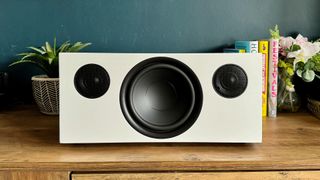
The five-star C20 is a supremely capable performer courtesy of Audio Pro, merging together a range of functionalities and potential use cases into a unified, exceptionally impressive package. We've called many speakers and pieces of hi-fi kit "jacks-of-all-trades", but the C20 really deserves the monicker.
The Audio Pro is primarily a wireless speaker, with its wi-fi capabilities allowing it to stream tracks up to 24-bit/96kHz via AirPlay 2 and Google Cast, as well as through Spotify Connect, Tidal Connect and Audio Pro multi-room. That's plenty of choice, and it makes this mains-powered powerhouse a wildly versatile solution that goes beyond the capabilities of your traditional wireless speaker.
Then there's the physical connections. The C20 offers a batch of RCA inputs alongside HDMI ARC for boosting your TV's sound, plus a sub out if you're keen to add a subwoofer into the mix. There's an optical input for hooking up to digital sources, as well as an MM phono stage if you plan on connecting up your turntable to the C20's convenient, one-stop-shop.
Then there's the sound of the thing. What's remarkable about the koala-faced speaker (it reminds some of our team of a koala, others of a giant Lego brick) is how expansive and open the soundscape it conjures is, offering a presentation that breathes and expands with a wonderful sense of scale for your music and movies. Within this wide sonic landscape are lots of details and nuances to pick out, each one finding a place within the wider composition.
A superb speaker that does so many things very, very well, few single-box units can compete.
Read our full Audio Pro C20 review
Also Consider
JBL Authentics 300: Large, good-looking and very versatile, the Authentics 300 is a great choice for anyone who wants a semi-portable wireless speaker that can be moved from room to room where, once settled, it will fire out a robust, enthusiastic sound with confidence and spirit. With dual voice assistants, Bluetooth, wi-fi streaming and Alexa Multiroom, the 300 is far more than a pretty face.
Sonos Move 2: More the kind of speaker you'd take to the bottom of the garden rather than much further afield, the Move 2 is a solid, semi-portable alternative to the contenders listed above, made attractive by its extensive list of streaming features, seamless compatibility with other Sonos products and clear, agile sonic profile.
How to choose a wireless speaker
Once you've figured out a budget, you'll need to consider a few parameters. When choosing a wireless speaker, think about where you'll be using it and what you actually want from it. Will a small speaker for a second room be enough, or do you want a larger model that can fill a bigger space or act as your primary sound system? Do you want voice control? If you want portability from your wireless speaker, you might want to choose something with a built-in rechargeable battery.
Wireless speakers mostly include Bluetooth for basic streaming, but many can be connected to your home wi-fi network so you can utilise features such as AirPlay, Spotify Connect, Tidal Connect and any multi-room bonuses they might have. Many wireless speakers also come with a dedicated control app so you can control all their tricks and features via your smartphone/tablet.
Wireless speakers can come in one-box units (Audio Pro, Naim) or as active stereo speakers with sources and amplification built-in (see the KEF LSX II).
Once you've decided what you're looking for, draw up a list of candidates. To help with that, we've got you covered below with a great selection of wireless speakers across different price points. There should be something for everyone.
How we test wireless speakers
While we have state-of-the-art testing facilities in Reading and London, where our team of experienced, in-house reviewers test the majority of hi-fi and AV kit that pass through our door, wireless speakers can be taken to a variety of locations to see how they perform across a range of environments and settings.
The most important thing to remember when testing a wireless speaker is sound, so that remains the starting point whenever anything passes through our doors. How a speaker sounds comes first, and it usually goes a long way in deciding whether we award a given rating. What Hi-Fi? is all about comparative testing, so each product we review is compared to the best in its price and style class, and we keep current What Hi-Fi? Award winners and plenty of five-star products across every product category we review in our stockroom so that we can always easily compare new products to rival ones we know.
That said, wireless speakers do a lot more than just play music, and they're getting smarter with each passing year. How a speaker integrates things like spatial audio is important if it's been advertised as a key feature, while connectivity options and a variety of streaming platforms (AirPlay, Chromecast etc.) are also taken into account. Apps and ease of use are important, too, with Sonos currently setting the benchmark in that particular area. Build quality is certainly considered, as is an item's aesthetic qualities - it's no good sounding sublime if you turn the stomachs of everyone in the living room every time they pass by.
All wireless speakers are tested and reviewed in the context of their value on a performance-per-dollar basis, and as part of our testing procedure, wireless speakers are compared against similarly-priced class leaders to see how they perform and help us figure out an appropriate rating.
All review verdicts are agreed upon by the team rather than an individual reviewer to eliminate any personal preference and to make sure we're being as thorough as possible. There's no input from PR companies or our sales team when it comes to the verdict, with What Hi-Fi? proud of having delivered honest, unbiased reviews for decades.
You can read more about how we test and review products on What Hi-Fi? here.
FAQ
What's the difference between Bluetooth and wireless speakers?
Wireless speakers use wi-fi to connect to an audio source, with various streaming protocols such as Apple AirPlay, Google Chromecast, UPnP, Spotify Connect/Tidal Connect allowing you to transmit music wirelessly over the connected network (or internet). Bluetooth-only speakers use the short-range, low-bandwidth Bluetooth protocol, and while many speakers support both types of streaming methods, they don't necessarily have to have both.
Bluetooth-only speakers can't use wi-fi, while you can't use Bluetooth on a wireless speaker that doesn't have wi-fi built-in. There are advantages to wi-fi: it doesn't have as limited a signal range as Bluetooth, is capable of transmitting higher-quality audio (up to 24-bit hi-res) and has more flexible methods of streaming. Bluetooth is more limited and is a lossy transmission of audio, but it doesn't need a wi-fi connection to connect to, and can be more affordable and portable as it doesn't require being tethered to a mains or home network connection.
Are JBL and Bose good brands?
At What Hi-Fi?, we've reviewed many products from both JBL and Bose over the years, and we've liked products from both brands. While Bose speakers are often stylish, have lots of features and have ruled the roost in years past, JBL's current run of Bluetooth and wireless speakers has been impressing us with their features list, enjoyable sound quality and better value for money.
However, while JBL is very dominant when it comes to affordable Bluetooth speakers, you'll see from the list above that wireless speakers from other brands, such as Sonos, Apple or Audio Pro, deliver even better streaming features, build quality and audio performance when it comes to buying a wireless speaker – although they tend to be admittedly more expensive.
Why is Sonos so popular?
Sonos' big claim to fame is popularising multi-room audio, i.e. being able to play music across your entire house across multiple speakers instead of in a single room with a single speaker.
Of course, Sonos wasn't the first company to do this, but Sonos did manage to design stylish, performant, feature-rich wireless speakers that were never too tough to set up, bringing high-quality multi-room audio to the masses. The seamless way it handles the connection between these multiple speakers and the well-organised and easy-to-use Sonos app is also a huge part of its popularity.
Now, the company offers a variety of products from smart speakers to soundbars, many of which we've found to offer strong sound performances and good value – various Sonos products have also won multiple What Hi-Fi? Awards from us in recent years, so you know it's a firm recommendation of quality overall. Sonos products also support a huge range of popular music streaming services and various source devices that are easy to play from. All of this, together, adds up to why Sonos is still so popular.
Recent updates
- April 2024: Added Audio Pro C20 wireless speaker following its five-star review
- February 2024: Added FAQ section to help with buying decisions and frequently asked questions.
- November 2023: What Hi-Fi? Award winners labelled after the 2023 Awards Best Buys and Product of the Year announcements.
MORE:
Best wireless headphones: Bluetooth headphones for every budget
Want more portable fun? Our best Bluetooth speakers will see you right
Planning on a pool party? These are the best outdoor speakers
